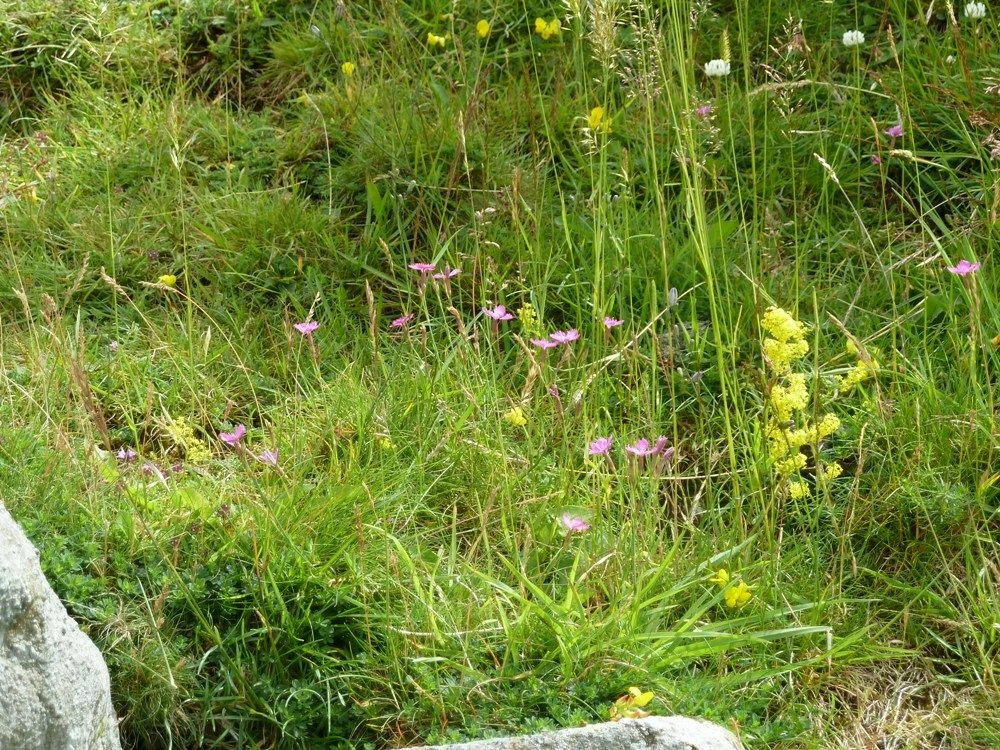
Partner Article
?Grass-up? grasslands for share of cash
Northumberland Wildlife Trust would like members of the public to ‘grass-up’ the region’s grasslands and help it secure a share of £2million.
Earlier this year, the Heritage Lottery Fund awarded the wildlife charity £5,000 to enable it to find out exactly what people know about grasslands by logging on at http://tinyurl.com/savingmagnificentmeadows and answering a short questionnaire.
The Trust has joined forces with 10 other conservation organizations, under the leadership of Plantlife, the UK’s wild plant conservation charity, to plan a national Save Our Magnificent Meadows campaign.
This campaign aims to protect, conserve and restore wildflower meadows and grasslands in specific areas of the UK and raise awareness of their importance with the general public and landowners/managers.
The information provided via the questionnaire will enable campaign leaders to highlight key issues which need to be addressed and help teams plan opportunities for people to get more involved in plant conservation. Once plans are in place, Northumberland Wildlife Trust will bid for a share of £2 million from the Heritage Lottery Fund too enable it to carry out vital grasslands conservation work.
Meadows and grasslands are wildlife-rich areas, which flower in abundance during the spring and summer; places such as this are one of the UK’s most diverse and important habitats, but they are under threat and disappearing fast - only 2% of the meadows that existed in the 1930’s remain today.
In this area, Northumberland Wildlife Trust is concentrating on two types of grasslands:whin grasslands which are only found in Northumberland and limited to areas along the Great Whin Sill and include a number of historical sites such as Hadrian’s Wall and the coastal castles of Bamburgh and Holy Island and caliminarian grasslands, more popularly known as heavy metal grasslands, which are found amongst the river shingles of the Tyne at places such as Beltingham and Close House which host a number of rare species including spring sandwort, Young’s helleborine and alpine pennycress, making them internationally important.
Steve Lowe, Head of Conservation at Northumberland Wildlife Trust said: “Please help us save these unique and beautiful places by completing the on-line survey which will help in our attempts to secure funding to conserve them - it will only take 5 minutes but the answers you give really will help us make a difference.”
This was posted in Bdaily's Members' News section by Sue Bishop .
Enjoy the read? Get Bdaily delivered.
Sign up to receive our daily bulletin, sent to your inbox, for free.








 Time to stop risking Britain’s family businesses
Time to stop risking Britain’s family businesses
 A year of growth, collaboration and impact
A year of growth, collaboration and impact
 2000 reasons for North East business positivity
2000 reasons for North East business positivity
 How to make your growth strategy deliver in 2026
How to make your growth strategy deliver in 2026
 Powering a new wave of regional screen indies
Powering a new wave of regional screen indies
 A new year and a new outlook for property scene
A new year and a new outlook for property scene
 Zero per cent - but maximum brand exposure
Zero per cent - but maximum brand exposure
 We don’t talk about money stress enough
We don’t talk about money stress enough
 A year of resilience, growth and collaboration
A year of resilience, growth and collaboration
 Apprenticeships: Lower standards risk safety
Apprenticeships: Lower standards risk safety
 Keeping it reel: Creating video in an authenticity era
Keeping it reel: Creating video in an authenticity era
 Budget: Creating a more vibrant market economy
Budget: Creating a more vibrant market economy